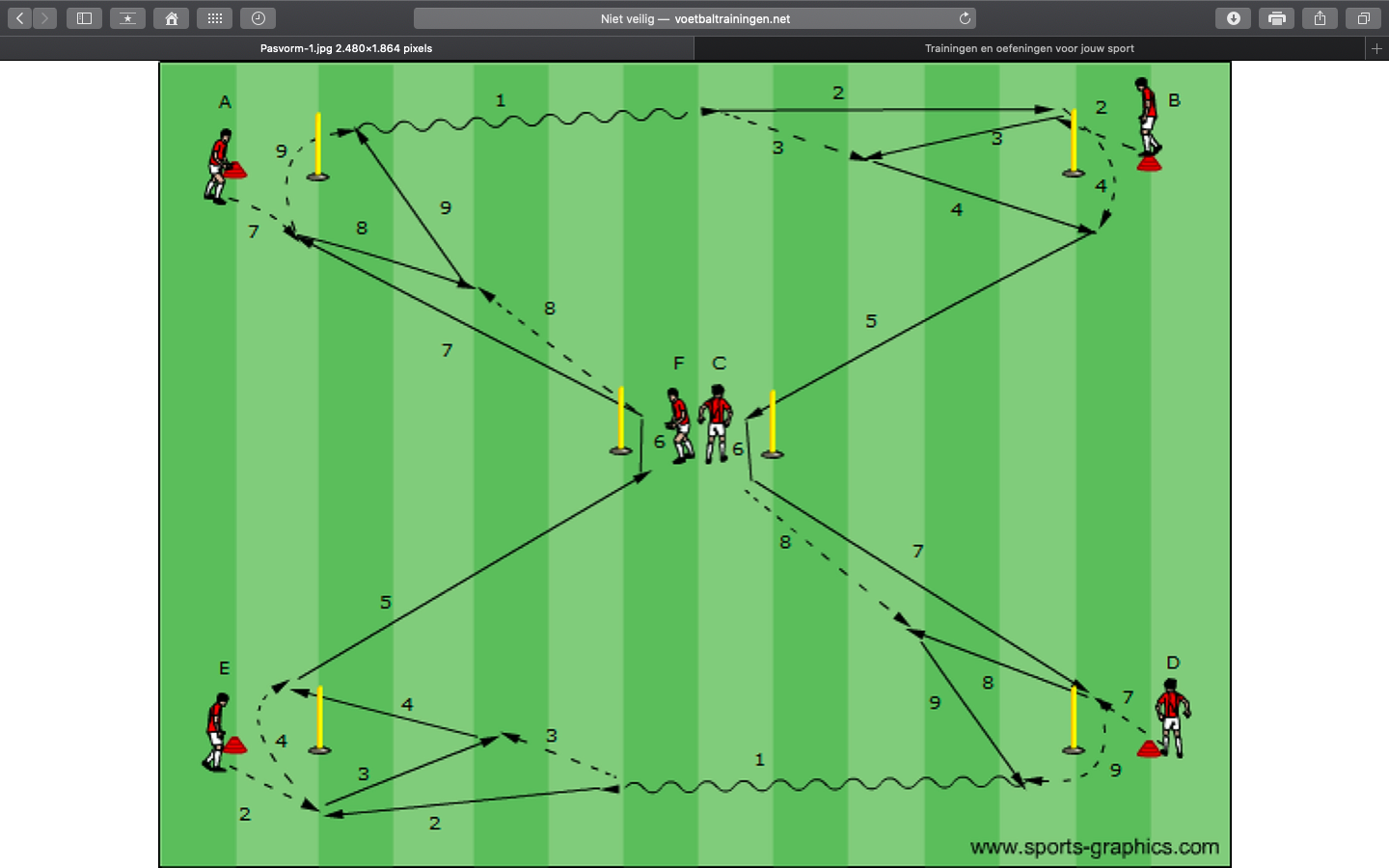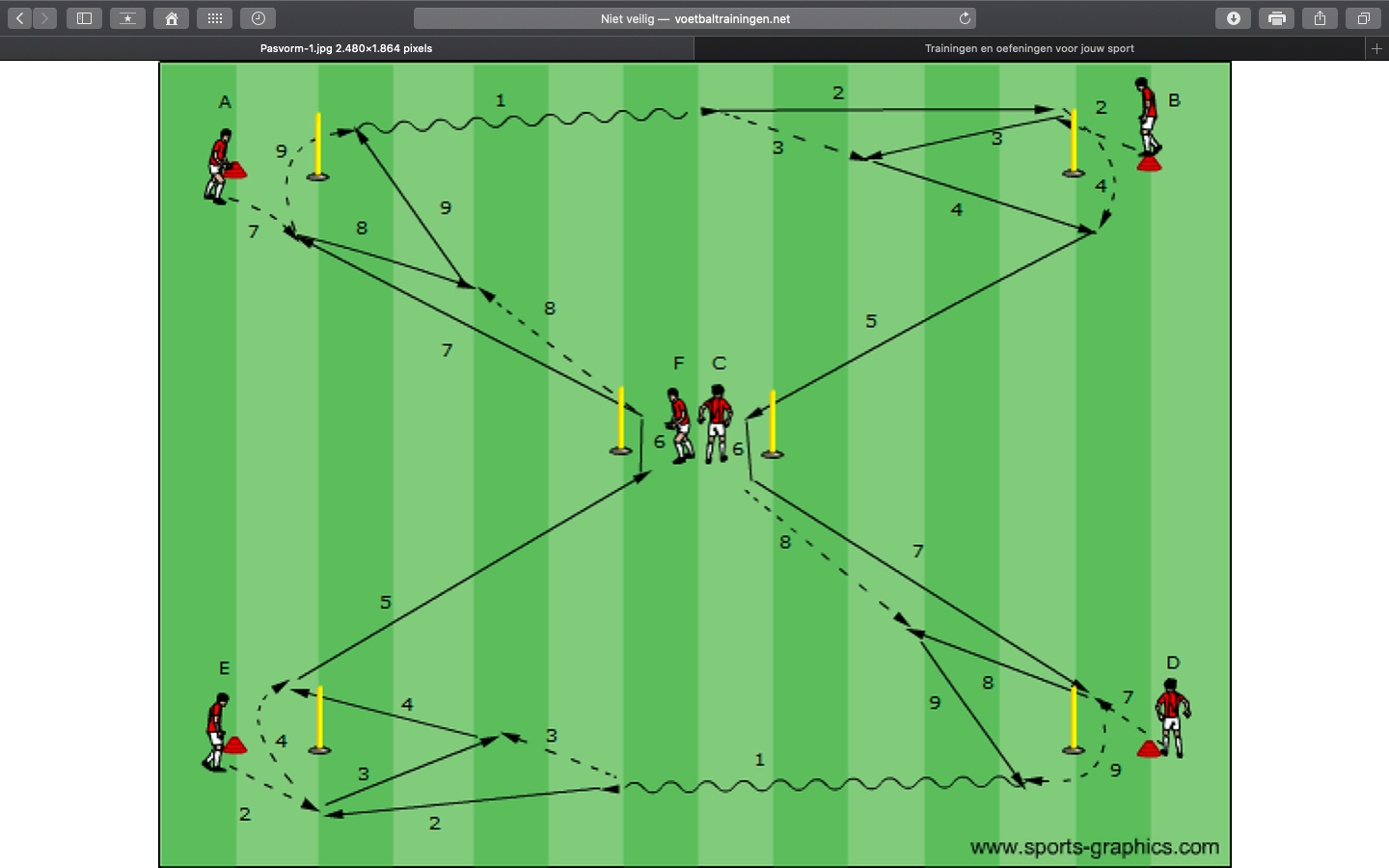Soccer exercises for u21
- Jump as far as possible from a standing position with your feet next to each other.
- Measure the distance between the starting line and the heel.
- The player sits with his back against the wall and his legs at an angle of 90 degrees.
- Keep this up as long as possible.
- Travel as fast as possible 5 times the distance of 10 meters.
- Put 2 pilons/line at 10 meters distance.
- The player runs 5 times back and forth between these pilons.
- The pilon/line must be hit with the foot !
- The players work in pairs.
- One player runs and the other player times.
- Put 4 pilons in a T-shape.
- 5 meters next to each other (between 3.2 and 4) and 10 meters ahead (between 1 and 2)
- Start at 1 forward to 2,
- then left sideways to 3,
- then right sideways to 4,
- then left sideways to 2
- and backwards to 1.
- Write down the fastest time in 2 attempts.
- Players work in pairs. 1 runs, 1 times.
- Cover as much distance as possible in 12 minutes.
- place pilons around the field every 10 meters.
- After 12 minutes the player stops where he stands.
- The distance to the pilon behind him/her counts.
- If the player stands between pilons 14 and 15, the distance of 140 meters (plus the number of complete rounds) counts.
- Cover 1600 meters in as fast as possible.
- Players work in pairs. One runs, the other times.
- Take 2x 100 meters over the length of the square and 2x 60 meters over the width of the square, place pilons.
- Players have to complete 5 complete rounds.

- Players A and D start by leading the ball to players B and E (1),
- The latter make themselves playable next to the stick on which A and D play the ball (2).
- B and E bounced the ball back (3) on which A and D pass the ball again (4).
- Then B and E play the ball on C and F (5).
- Doing a targeted check behind the stick (6) to then play the ball in on A and D
- Which make themselves playable (7),
- C and F ask for the ball back on which A and D play (8) and
- C and F bounced the ball again while A and D walked behind the stick (9).

- The second shape has slightly more pace than the first fit.
- A and D again lead the ball (1) and play in to B and E which make themselves playable (2),
- B and E now play in to C and F (3) on which the latter play a handball while B and E walk behind the stick (4).
- B and E then play the ball in the course of the next player A and D (5) etc...
- The action is fast but timing of A and D when catching up is important.
- Move again A-B-C-D-E-F-A.
- Here again 2 players per place minimum.








